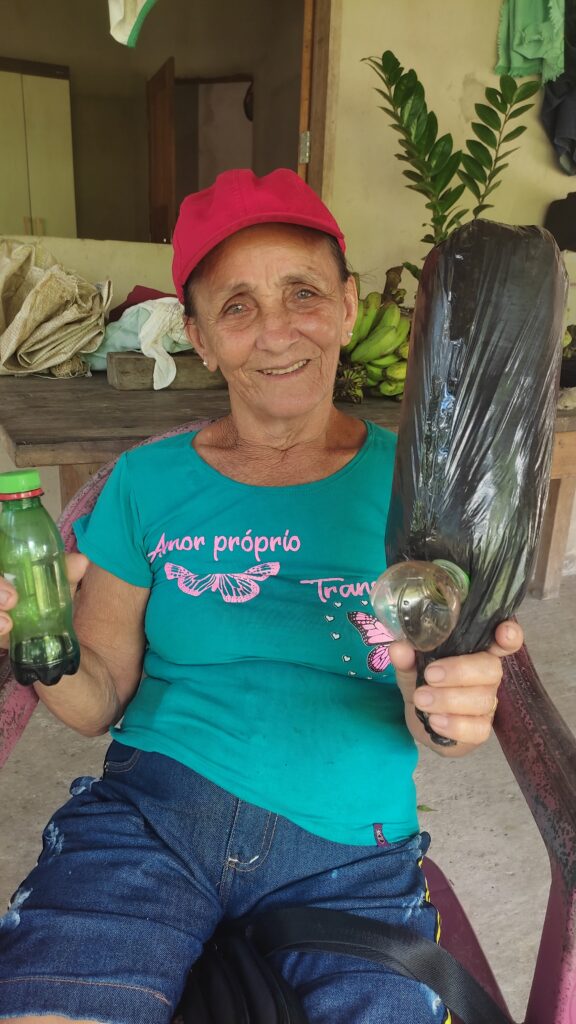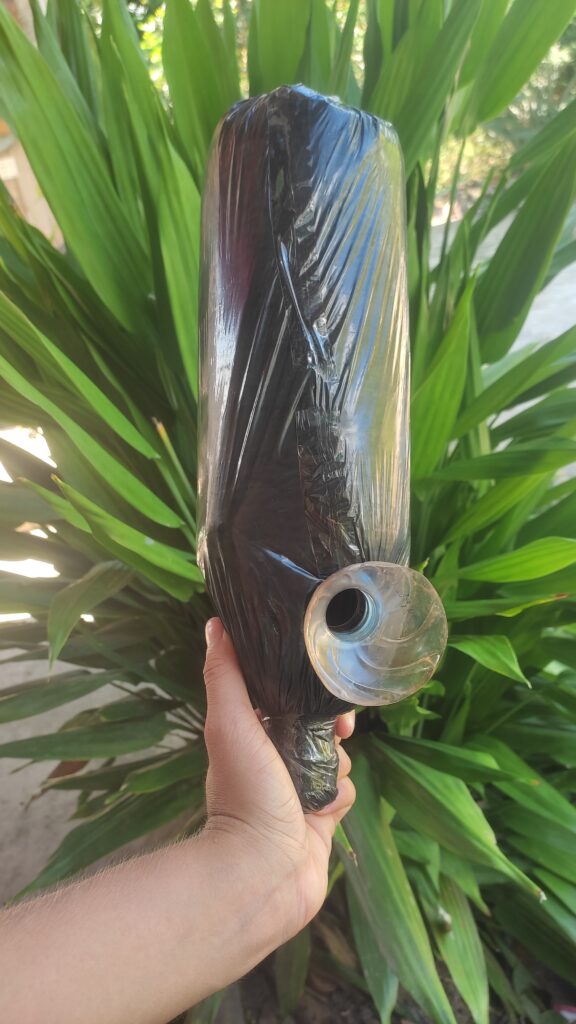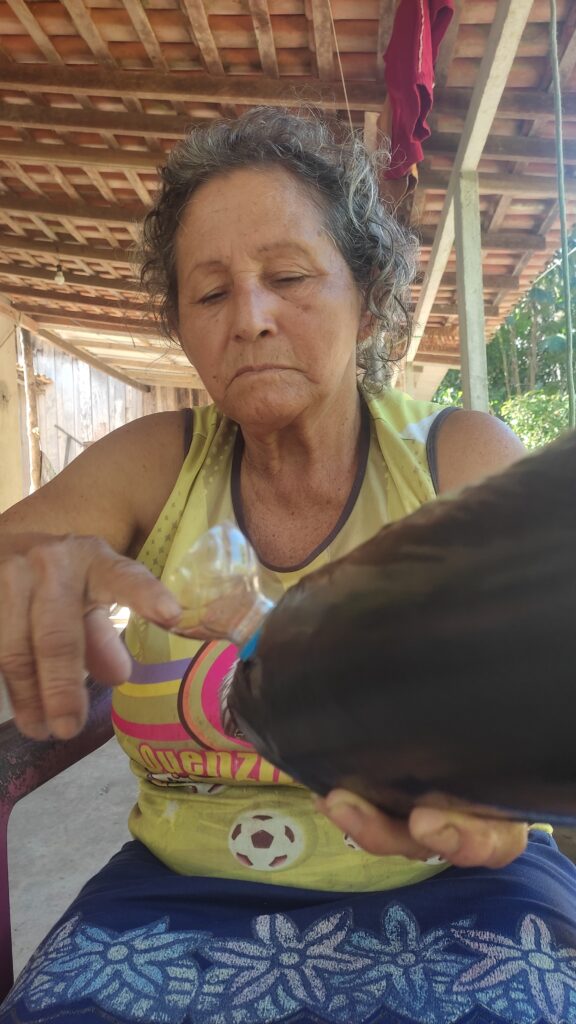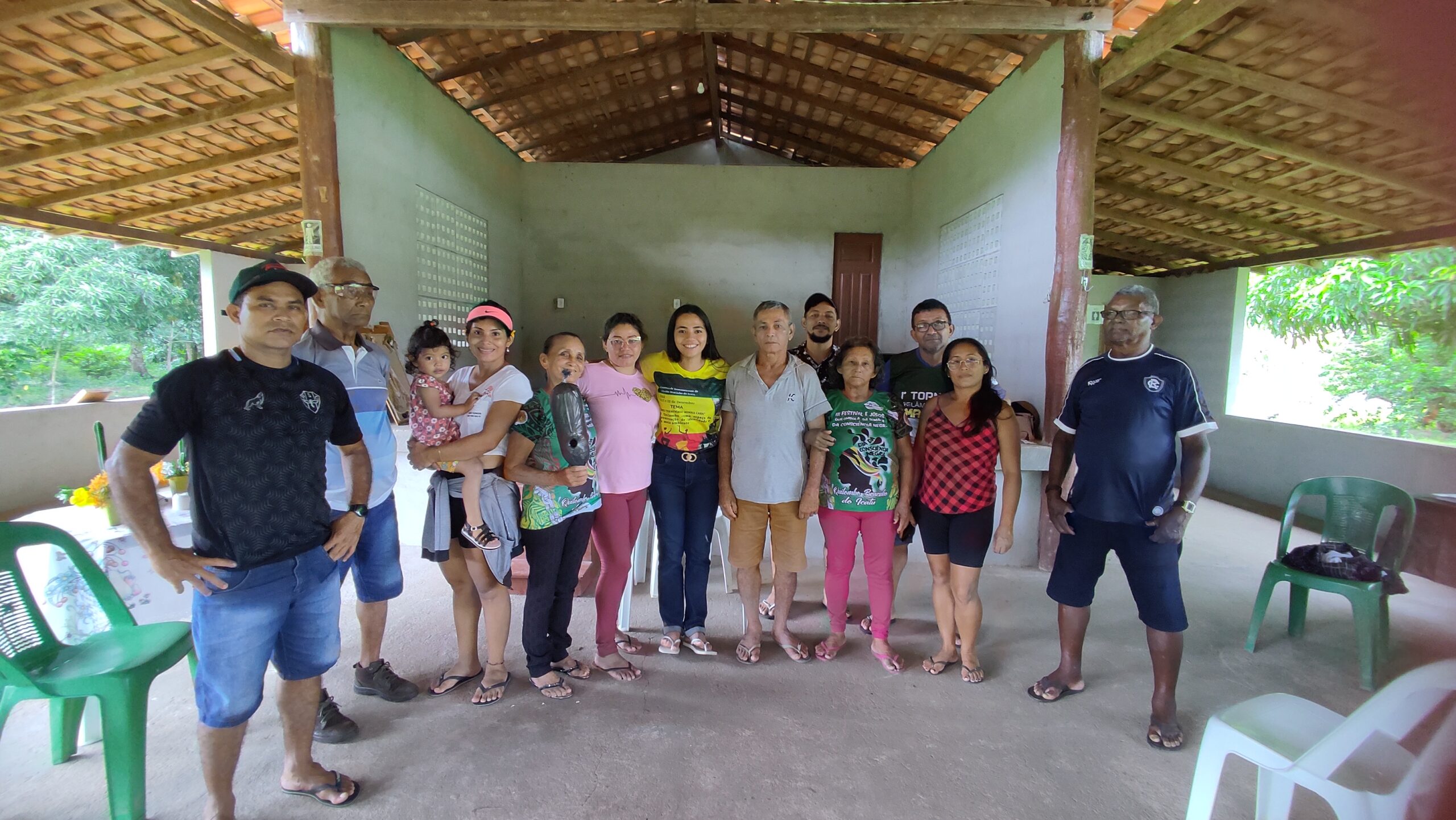Embracing the power of knowledge, Bracinho do Icatu, a Quilombola community in Pará, unites tradition with modern practices to preserve our native bees and ecosystems.
Authors: Taina and Ana Paula
Leia em Português
“Knowing to preserve” retakes the meaning of looking at existing knowledge within the community, which due to lack of more information has gradually been diluted, as for example the traditional knowledge about native bees. Even though understanding the importance of these pollinators for the environment, native bees are still directly impacted through unsustainable agricultural practices and improper handling in honey extraction.
Therefore, it is important to know their functionalities and handling techniques in order to preserve not only the bees but also the entire biodiversity. In this sense, the Meliponiculture workshop aimed to develop, in partnership with traditional communities (indigenous peoples, quilombolas, riparians, and peasants), friendly beekeeping practices. The workshop was designed to inform about the meliponiculture practice and sensitize the public about conservation, recognizing the overall role of pollinating insects, especially bees. It is important to present the positive impact of these agents on the preservation of fauna and flora, informing about rational breeding for income generation in farming communities, as well as a source of inputs for medicinal and culinary use.
It is known that traditional communities collaborate in maintaining their local biodiversity, assisting in the ecological balance of the spaces they inhabit. Communities have their own ways of social organization, using territories and natural resources as a condition for their economy, usually based on practices transmitted by cultural tradition, used as a means of subsistence. In this context, such communities greatly benefit from presentations focused on disseminating meliponiculture and its potential within traditional territories. Thus, the activity described in this report was carried out in the Remnant Community of Quilombo São Tomé de Bracinho do Icatu, which has this direct relationship with nature in a sustainable way, and a unique way of maintaining community life.
The Quilombo is located in the state of Pará, on PA 151, belonging to the Municipality of Baião, where about 75 families live. Its economic strength has always been based on family farming and plant and animal extractivism, with cassava cultivation being one of the main sources of income, followed by other products such as: corn, rice, beans, açaí, cocoa, cupuaçu, black pepper, and animal husbandry. Notable in extractivism are Brazil nuts, piquiá, uxi, hunting, and fishing. In this context, the Meliponiculture workshop “Knowing to preserve”, in partnership with the Meli Network, was held on 05/27/2023, by initiative of the student Tainá Viana from the Agronomy course at the Federal Rural University of the Amazon – UFRA. The target audience of this workshop was the elderly group of the community, mainly motivated by Mrs. Francisca Oliveira Silva and Mrs. Maria Raimunda, who meet monthly to share experiences, religious celebrations, conversations, and other learnings.
In general, the workshop provided introductory information about some species of native bees, the organization forms, and basic characteristics of hives. There were 15 people present at the activity, mainly from the elderly group, but also some adults and teenagers. One of the most important objectives of this workshop was to group the information presented with existing knowledge about bees, recognizing which species exist or have existed in the area, seeking to understand how honey extraction management was carried out and what the participants’ conception was regarding the environmental impacts caused by the reduction of species in the region.
When presenting slides about stingless bees and the role of pollination, the participants were attentive to the information and very interested in Meliponiculture. In the majority of the group’s reports, the practice of creating sustainable native bees was still not known. The participants reported that in the past, when colonies were found in the woods, the approach was different.



“When a hive was found in tree trunks in the field, smoke was used to expel them, on the way to my field, I collected honey twice, the hive was in a log or trunk of a medium thickness, I cut the side of the trunk, made a smoke with dry straw so that they wouldn’t attack me and I managed to remove six liters of honey. I covered the hive again, and the other time, the hive had already stabilized more forward, and I had to cut the trunk a little more, and then I couldn’t fix the trunk again and they migrated to another location on the trunk, in total I collected ten liters at that time”.
Senhor Nonato.
Thus, with this report, the other attendees also shared their experiences, especially medicinal ones with the honey of the bee. The most common practice is to use honey for the composition of syrups and oils for the cure of the throat, mainly in small children. The group reported that when the children’s tonsils were very swollen, for example, an experienced person from the community used a piece of cotton wrapped around the finger and soaked in honey to relieve the children’s throats. In the reports of the youngest, it can be seen that they have knowledge about native bees, and during the activity, they reported the absence of hives in the plantations, commenting on the impacts that their lack can cause in fruit production.
During the workshop, a “bait hive” was also built with the objective of teaching the community how to attract stingless bees, to observe which species are more present in the quilombo and also the flow of these bees in the observed areas. The activities carried out during the workshop aroused the group’s attention and curiosity about Meliponiculture and the importance of pollinators in the community and in the environment in general.
In conclusion, the workshop demonstrated that the people of the community have knowledge about bees in general and their role in nature. Participants are filled with experiences and knowledge about these small insects and the benefits of their products. However, their preservation and creation are not practiced due to a lack of knowledge and because of negative experiences with bees, such as attacks. In this sense, the activity on meliponiculture was a very interesting novelty for them. The workshop played a very important role in instigating curiosity within the community, as well as the discussion of doubts about stingless bees and their creation, which can be an initial step towards the introduction of Meliponiculture in the quilombo.
Your donation can have a positive impact on the world!
Subscribe to receive our Newsletter!
Find us also at Linkedin, Facebook, Twitter or Instagram
www.meli-bees.org
❤️

